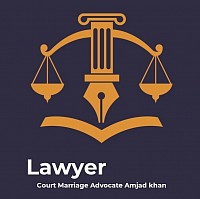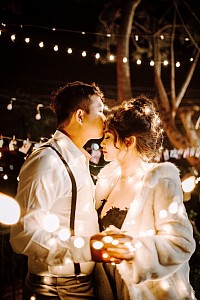SPECIAL MARRIAGE PROCEDURE IN DELHI
special marriage procedure In Delhi
special marriage procedure in Delhi I
a special marriage procedure is followed for couples who wish to get married under the Special Marriage Act, 1954. This procedure is applicable to couples of different religions, castes or nationalities.
The procedure is as follows:
- Notice of Intended Marriage: The couple needs to file a notice of intended marriage at the office of the Marriage Officer in the district where either of the parties has been residing for a minimum of 30 days prior to the date of filing of notice.
- Publication of Notice: The notice of intended marriage is then published by the Marriage Officer inviting objections, if any, to the proposed marriage. The notice is published on the notice board of the office of the Marriage Officer for 30 days.
- Objections, if any: If any objections are raised within the 30-day period, the Marriage Officer conducts an inquiry and decides on the objections. If the objections are found to be valid, the marriage may be refused. If the objections are not valid, the Marriage Officer will proceed with the marriage.
- Declaration by Parties and Witnesses: After the 30-day notice period is over and no objections have been raised or objections have been resolved, the parties and three witnesses need to sign a declaration stating that they are not related to each other within the prohibited degree of relationship and that they are entering into the marriage voluntarily.
- Solemnization of Marriage: The Marriage Officer solemnizes the marriage on a date fixed by him/her, in the presence of the parties and three witnesses.
- Marriage Certificate: After the solemnization of the marriage, the Marriage Officer issues a marriage certificate to the parties.
Note: The entire process usually takes about 30 to 60 days.
Documents CheckList
- Documents for special Marriage
If you're planning to register for a special marriage in Delhi, you'll need to provide certain documents to the concerned authorities. Here is a list of documents that you'll need to submit:
- Application form duly signed by both parties.
- Proof of age - Birth certificate or school leaving certificate or passport.
- Proof of residence - Voter ID card, Aadhar card, or any other government-issued ID with the current address.
- Four passport size photographs of both the bride and the groom.
- Marriage invitation card, if available.
- Marriage declaration signed by both parties stating that they are not related to each other within the prohibited degree of relationship as per the Hindu Marriage Act, 1955.
- A No Objection Certificate (NOC) from the concerned embassy/consulate in case one of the parties is a foreign national.
- Divorce Decree/order in case of any prior marriages.
- Death certificate of spouse in case of widow/widower.
Affidavit of special marriage
AFFIDAVIT
I, [Your Name], son/daughter of [Father's Name], aged about [Your Age] years, resident of [Your Address], Delhi, do hereby solemnly affirm and declare as under:
- That I am a citizen of India.
- That I am unmarried/ divorced/ widowed as on date.
- That I am not related to [Partner's Name], my proposed spouse, within the degrees of prohibited relationship as per the Hindu Marriage Act, 1955/ Special Marriage Act, 1954.
- That I have not entered into any marriage or relationship with any person which is subsisting as on date.
- That I have not been declared to be of unsound mind by any court of law.
- That I have attained the age of [Minimum Age for Marriage], which is the minimum age required for marriage as per the law.
- That I solemnly declare that I am entering into the marriage with [Partner's Name], of my own free will and consent, without any force, coercion, undue influence or compulsion from any quarter whatsoever.
- That I am aware of the legal consequences of the marriage and that it would be solemnized under the provisions of the Special Marriage Act, 1954.
- That I have given due notice of my intention to marry [Partner's Name] under the provisions of the Special Marriage Act, 1954.
- That I undertake to inform the Marriage Officer, under whose jurisdiction I reside, in case any material change occurs in my status or in the particulars mentioned hereinabove.
- That the contents of this affidavit are true and correct to the best of my knowledge and belief and nothing material has been concealed therefrom.
DEPONENT
[Your Name]
VERIFICATION
Verified at Delhi on this [Date] day of [Month], [Year] that the contents of this affidavit are true and correct to the best of my knowledge and belief and nothing material has been concealed therefrom.
DEPONENT
[Your Name]
Benefits of Special Marriages
Benefits of Special Marriages.
Special marriages, also known as interfaith marriages or civil marriages, can offer several benefits to couples. Here are some of the advantages of special marriages:
- Cultural exchange: Special marriages allow couples from different cultures and backgrounds to learn from each other and exchange their values, traditions, and beliefs.
- Freedom to choose: Couples can choose to marry the person they love, regardless of their religion, caste, or creed.
- Legal protection: Special marriages are legally recognized, and couples are entitled to the same legal rights and protections as any other married couple.
- Gender equality: Special marriages provide an opportunity for women to have equal rights and status in a marriage, which is not always possible in traditional arranged marriages.
- Social acceptance: Special marriages can help break down cultural barriers and promote social acceptance of diversity and pluralism.
- Personal growth: Special marriages can challenge couples to grow personally and spiritually as they learn to navigate their differences and work towards a common goal.
In summary, special marriages can offer numerous benefits to couples, including cultural exchange, legal protection, gender equality, social acceptance, and personal growth
Sure, I'd be happy to help with any questions you have about special marriage. Here are some frequently asked questions and their answers
Q: What is a special marriage?
A: A special marriage is a legal union between two individuals of different religions, castes, or communities. This type of marriage is registered under the Special Marriage Act, 1954 in Inda.
Question with Answer
Q: Who can get married under the Special Marriage Act?
A: Any two individuals who are eligible to marry, regardless of their religion, caste, or community, can get married under the Special Marriage Act.
FAQ
Q: What are the requirements for getting married under the Special Marriage Act?
A: The requirements for getting married under the Special Marriage Act include:
Both individuals must be at least 21 years of age for males and 18 years of age for females.
Both individuals must be unmarried or legally divorced.
Both individuals must give notice of their intention to marry to the Marriage Officer in their district
FAQ
Q: What is the process for getting married under the Special Marriage Act?
A: The process for getting married under the Special Marriage Act includes:
Giving notice of your intention to marry to the Marriage Officer in your district.
Publication of the notice.
Waiting period of 30 days to allow for objections to be made.
If no objections are made, the marriage can take place within 90 days of the notice.
Both individuals must appear before the Marriage Officer on the date of the marriage, along with three witnesses.
FAQ
Q: What documents are required for getting married under the Special Marriage Act?
A: The documents required for getting married under the Special Marriage Act include:
Proof of age (birth certificate, passport, or school leaving certificate)
Proof of residence (passport, driving license, or utility bill)
Passport size photographs
Affidavit stating that both individuals are unmarried or legally divorced
Marriage invitation card (if available)
FAQ
Q: Can a special marriage be registered outside of India?
A: No, a special marriage can only be registered in India under the Special Marriage Act, 1954.
FAQ
Q: Can a special marriage be solemnized in a place of worship?
A: No, a special marriage cannot be solemnized in a place of worship. It must take place in a marriage registrar's office or any other place that is open to the public.



